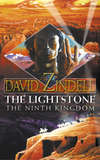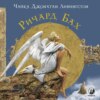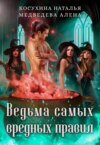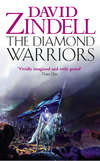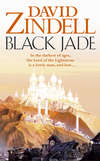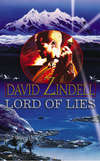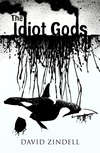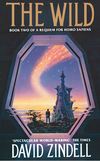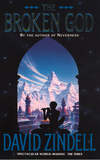Читать книгу: «The Lightstone: The Ninth Kingdom: Part One», страница 2
‘There’s more to the world than Mesh,’ I said. I listened to the twittering of the birds in the forest. ‘What of Eanna and Yarkona? What of Alonia? The Elyssu? And Delu?’
At the mention of his homeland, Maram stood up and grabbed his bow. Despite his renunciation of war, he shook it bravely and said, ‘Ah, my friend is right. We defeated Morjin once. And we can defeat him again.’
For a moment I held my breath against the beery vapors wafting out of Maram’s mouth. Defeating Morjin, of course, wasn’t what I had suggested. But uniting against him so that we wouldn’t have to fight at all was.
‘We should send an army of Valari against him,’ Maram bellowed.
I tried not to smile as I noted that in demanding that ‘we’ fight together against our enemy, Maram meant us: the Meshians and the other Valari.
I looked at him and asked, ‘And to where would you send this army that you’ve so bravely assembled in your mind?’
‘Why, to Sakai, of course. We should root out Morjin before he gains too much strength and then destroy him.’
At this Asaru’s face paled, as did Lord Harsha’s and, I imagined, my own. Once, long ago, a Valari army had crossed the Wendrush to join with the Alonians in an assault on Sakai. And at the Battle of Tarshid, Morjin had used firestones and treachery to defeat us utterly. It was said that he had crucified the thousand Valari survivors for twenty miles along the road leading to Sakai; his priests had pierced our warriors’ veins with knives and had drunk their blood. All the histories cited this as the beginning of the War of the Stones.
Of course, no one knew if the Morjin who now ruled in Sakai was the same man who had tortured my ancestors: Morjin, Lord of Lies, the Great Red Dragon, who had stolen the Lightstone and kept it locked away in his underground city of Argattha. Many said that the present Morjin was only a sorcerer or usurper who had taken on the most terrible name in history. But my grandfather had believed that these two Morjins were one and the same. And so did I.
Asaru stood staring at Maram, and said, ‘So then, you want to defeat Morjin – do you hope to recover the Lightstone as well?’
‘Ah, well,’ Maram said, his face falling red, ‘the Lightstone – now that’s a different matter. It’s been lost for three thousand years. Surely it’s been destroyed.’
‘Surely it has,’ Lord Harsha agreed. The Lightstone, the firestones, most of the other gelstei – they were all destroyed in the War of the Stones.’
‘Of course it was destroyed,’ Asaru said as if that ended the matter.
I wondered if it was possible to destroy the gold gelstei, greatest of all the stones of power, from which the Lightstone was wrought. I was silent as I watched the clouds move down the valley and cover up the sun. I couldn’t help noticing that despite the darkness of these monstrous gray shapes, some small amount of light fought its way through.
‘You don’t agree, do you?’ Asaru said to me.
‘No,’ I said. The Lightstone exists, somewhere.’
‘But three thousand years, Val.’
‘I know it exists – it can’t have been destroyed.’
‘If not destroyed, then lost forever.’
‘King Kiritan doesn’t think so. Otherwise he wouldn’t call a quest for knights to find it.’
Lord Harsha let loose a deep grumbling sound as he packed the uneaten food into his horse’s saddlebags. He turned to me, and his remaining eyed bore into me like a spear. ‘Who knows why foreign kings do what they do? But what would you do, Valashu Elahad, if you suddenly found the Lightstone in your hands?’
I looked north and east toward Anjo, Taron, Athar, Lagash and the other kingdoms of the Valari, and I said simply, ‘End war.’
Lord Harsha shook his head as if he hadn’t heard me correctly. He said, ‘End the wars?’
‘No, war,’ I said. ‘War itself.’
Now both Lord Harsha and Asaru – and Joshu Kadar as well – looked at me in amazement as if I had suggested ending the world itself.
‘Ha!’ Lord Harsha called out. ‘No one but a scryer can see the future, but let’s make this prediction anyway: when next the Ishkans and Meshians line up for battle, you’ll be there at the front of our army.’
I smelled moisture in the air and bloodlust in Lord Harsha’s fiery old heart, but I said nothing.
And then Asaru moved close to me and caught me with his brilliant eyes. He said quietly, ‘You’re too much like Grandfather: you’ve always loved this gold cup that doesn’t exist.’
Did the world itself exist? I wondered. Did the light I saw shining in my brother’s eyes?
‘If it came to it,’ he asked me, ‘would you fight for this Lightstone or would you fight for your people?’
Behind the sadness of his noble face lingered the unspoken question: Would you fight for me?
Just then, as the clouds built even higher overhead and the air grew heavy and still, I felt something warm and bright welling up inside him. How could I not fight for him? I remembered the outing seven years ago when I had broken through the thin spring ice of Lake Waskaw after insisting that we take this dangerous shortcut toward home. Hadn’t he, heedless of his own life, jumped into the black, churning waters to pull me out? How could I ever simply abandon this noble being and let him perish from the earth? Could I imagine the world without tall, straight oak trees or clear mountain streams? Could I imagine the world without the sun?
I looked at my brother, and felt this sun inside me. There were stars there, too. It was strange, I thought, that although he was firstborn and I was last, that although he wore four diamonds in his ring and I only one, it was he who always looked away from me, as he did now.
‘Asaru,’ I said, ‘listen to me.’
The Valari see a man as a diamond to be slowly cut, polished and perfected. Cut it right and you have a perfect jewel; cut it wrong, hit a flaw, and it shatters. Outwardly, Asaru was the hardest and strongest of men. But deep inside him ran a vein of innocence as pure and soft as gold. I always had to be gentle with him lest my words – or even a flicker in my eyes – find this flaw. I had to guard his heart with infinitely more care than I would my own.
‘It may be,’ I told him, ‘that in fighting for the Lightstone, we’d be fighting for our people. For all people. We would be, Asaru.’
‘Perhaps,’ he said, looking at me again.
Someday, I thought, he would be king and therefore the loneliest of men. And so he needed one other man whom he could trust absolutely.
‘At least,’ I said, ‘please consider that our grandfather might not have been a fool. All right?’
He slowly nodded his head and grasped my shoulder. ‘All right.’
‘Good,’ I said, smiling at him. I picked up my bow and nodded toward the woods. Then why don’t we go get your deer?’
After that we helped Lord Harsha put away the remains of our lunch. We slipped on our quivers full of hunting arrows. I said goodbye to Altaru, my fierce, black stallion, who reluctantly allowed Joshu Kadar to tend him in my absence. I thanked Lord Harsha for his hospitality, then turned and led the way into the woods.
2
As soon as we entered this stand of ancient trees, it grew cooler and darker. The forest that filled the Valley of the Swans was mostly of elm, maple and oak with a scattering of the occasional alder or birch. Their great canopies opened out a hundred feet above the forest floor, nearly blocking out the rays of the cloud-shrouded sun. The light was softened by the millions of fluttering leaves, and deepened to a primeval green. I could almost smell this marvelous color as I could the ferns and flowers, the animal droppings and the loamy earth. Through the still air came the tap-tap-tap of a woodpecker and the buzzing of bees; I heard a pair of bluebirds calling to each other and the whispering of my own breath.
We walked deeper into the woods across the valley almost due east toward the unseen Mount Eluru. I was as sure of this direction as I was of the beating of my heart. Once a sea captain from the Elyssu, on a visit to our castle, had shown me a little piece of iron called a lodestone that pointed always toward the north. In my wandering of Mesh’s forests and mountains, I had always found my way as if I had millions of tiny lodestones in my blood pointing always toward home. And now I moved steadily through the great trees toward something vast and deep that called to me from the forest farther within. What was calling me, however, I didn’t quite know.
I felt something else there that seemed as out of place as a snow tiger in a jungle or the setting of the sun in the east. The air, dark and heavy, almost screamed with a sense of wrongness that chilled me to the bone. I felt eyes watching me: those of the squirrels and the cawing crows and perhaps others as well. For some reason, I suddenly thought of the lines from The Death of Elahad – Elahad the Great, my distant ancestor, the fabled first king of the Valari who had brought the Lightstone to Ea long, long ago. I shuddered as I thought of how Elahad’s brother, Aryu, had killed Elahad in a dark wood very like this one, and then, ages before Morjin had ever conceived of such a crime, claimed the Lightstone for his own:
The stealing of the gold, The evil knife, the cold – The cold that freezes breath, The nothingness of death.
My breath steamed out into the coolness of the silent trees as I caught a faint, distant scent that disturbed me. The sense of wrongness pervading the woods grew stronger. Perhaps, I thought, I was only dwelling on the wrongness of Elahad’s murder. I couldn’t help it. Wasn’t all killing of men by men wrong? I asked myself.
And what of killing, itself? Men hunted animals, and that was the way the world was. I thought of this as the scar above my eye began to tingle with a burning coldness. I remembered that once, not far from here, I had tried to kill a bear; I remembered that sometimes bears went wrong in their hearts and hunted men just for the sport of it.
I gripped my bow tightly as I listened for a bear or other large animal crashing through the bushes and bracken all about us. I listened to Maram stepping close behind me and to Asaru following him. Maram, curiously, despite his size, could move quietly when he wanted to. And he could shoot straight enough, as the Delian royalty are taught. We Valari, of course, are taught three fundamental things: to wield a sword, to tell the truth, and to abide in the One. But we are also taught to shoot our long yew bows with deadly accuracy, and some of us, as my grandfather had taught me, to move across even broken terrain almost silently. I believe that if we had chanced upon a bear feasting upon wild newberries or honey, we might have stepped up close to him unheard and touched him before being discovered.
That is, we might have done this if not for Maram’s continual comments and complaints. Once, when I had bent low to examine the round, brown pellets left behind by a deer, he leaned up against a tree and grumbled, ‘How much farther do we have to go? Are you sure we’re not lost? Are you sure there are any deer in these wretched woods?’
Asaru’s voice hissed out in a whisper, ‘Shhh – if there are any deer about, you’ll scare them away.’
‘All right,’ Maram muttered as we moved off again. He belched, and a bloom of beer vapor obliterated the perfume of the wildflowers. ‘But don’t go so fast. And watch out for snakes. Any poison ivy.’
I smiled as I tugged gently on the sleeve of his red tunic to get him going again. But I didn’t watch for snakes, for the only deadly ones were the water dragons which hunted mostly along the streams. And the only poison ivy that was to be found in Mesh grew in the mountains beyond the Lower Raaswash near Ishka.
We walked for most of an hour while the clouds built into great black thunderheads high in the sky and seemed to press down through the trees with an almost palpable pressure. Still I felt something calling me, and I moved still deeper into the woods. I saw an old elm shagged with moss, a clear sign that we were approaching a place I remembered very well. And then, as Maram drew in a quick breath, I turned to see him pointing at the exposed, gnarly root of a great oak tree.
‘Look,’ he murmured. “What’s wrong with that squirrel?’
A squirrel, I saw, was lying flat on the root with its arms and legs splayed out. Its dark eye stared out at us but appeared not to see us. Its sides shook with quick, shallow breathing.
I closed my eyes for a moment, and I could feel the pain where something sharp had punctured the squirrel beneath the fur of its hind leg. It was the sharp, hot pain of infection, which burned up the leg and consumed the squirrel with its fire.
‘Val?’
Something dark and vast had its claws sunk into the squirrel’s fluttering heart, and I could feel this terrible pulling just as surely as I could Maram’s fear of death. This was my gift; this was my glory; this was my curse. What others feel, I feel as well. All my life I had suffered from this unwanted empathy. And I had told only one other person about its terrors and joys.
Asaru moved closer to Maram and pointed at the squirrel as he whispered, Val has always been able to talk to animals.’
It was not Asaru. Although he certainly knew of my love of animals and sometimes looked at me fearfully when I opened my heart to him, he sensed only that I was strange in ways that he could never quite understand. But my grandfather had known, for he had shared my gift; indeed, it was he who gave it to me. I thought that like the color of my eyes, it must have been passed along in my family’s blood – but skipping generations and touching brother and sister capriciously. I thought as well that my grandfather regarded it as truly a gift and not an affliction. But he had died before he could teach me how to bear it.
For a few moments I stared at the squirrel, touching eyes. I suddenly remembered other lines from The Death of Elahad; I remembered that Master Juwain, at the Brotherhood’s school, had never approved of this ancient song, because, as he said, it was full of dread and despair:
And down into the dark,
No eyes, no lips, no spark.
The dying of the light,
The neverness of night.
Maram asked softly, ‘Should we finish him?’
‘No,’ I said, holding up my hand. ‘It will be dead soon enough. Let it be.’
Let it be, I told myself, and so I tried. I closed myself to this dying animal then. To keep out the waves of pain nauseating me, by habit and instinct, I surrounded my heart with walls as high and thick as those of my father’s castle. After a while, even as I watched the light go out of the squirrel’s eye, I felt nothing.
Almost nothing. When I closed my eyes, I remembered for the thousandth time how much I had always hated living inside of castles. As much as fortresses keeping enemies out, they are prisons of cold stone keeping people within.
‘Let’s go,’ I said abruptly.
Where does the light go when the light goes out? I wondered.
Asaru, it seemed, had also tried to distance himself from this little death. He moved off slowly through the woods, and we followed him. Soon, near a patchwork of ferns growing close to the ground, we came upon a splintered elm that had once been struck by lightning. Although the wood of this fallen tree was now brown and crumbling with rot, once it had been white and hard and freshly scorched.
Once, in this very place, I had come upon the bear that Lord Harsha had spoken of. It had been a huge, brown bear, a great-grandfather of the forest. Upon beholding this great being, I had frozen up and been unable to shoot him. Instead, I had lain down my bow and walked up to touch him. I had known the bear wouldn’t hurt me: he had told me this in the rumbling of his well-filled belly and the playfulness of his eyes. But Asaru hadn’t known this. Upon seeing me apparently abandoning all sense, he had panicked, shooting the bear in the chest with an arrow. The astonished bear had then fallen on him with his mighty paws, breaking his arm and smashing his ribs. And I had fallen on the bear. In truth, I had jumped on his back, pulling at his thick, musky fur and stabbing him with my knife in a desperate attempt to keep him from killing Asaru. And then the bear had turned on me as I had turned on him; he had hammered my forehead with his sharp claws. And then I had known only blackness until I awoke to see Andaru Harsha pulling his great hunting spear out of the bear’s back.
Later that night, Asaru had told our father how I had saved his life. It was a story that became widely known – and widely disbelieved. To this day, everyone assumed that Asaru had embellished my role in the bear’s killing to save me from the shame of laying down my weapons in the face of the enemy.
‘Look, Val,’ Asaru whispered, pointing through the trees.
I turned to follow the line of his outstretched finger. Standing some thirty yards away, munching the leaves of a tender fern, was the deer that we had come for. He was a young buck, his new antlers fuzzy with velvet. Miraculously, he hadn’t yet seen us. He kept eating quietly even as we slipped arrows from our quivers and nocked them to our bowstrings.
Asaru, kneeling ten paces to my left, drew his bow along with me, as did Maram who stood slightly behind me and to my right. I felt their excitement heating up their quickly indrawn breaths. I felt my own excitement, too. My mouth watered in anticipation of the coming night’s feast. In truth, I loved the taste of meat as well as any man, even though very often I couldn’t do what I had to do to get it.
‘Abide in peace,’ I whispered.
At that moment, as I pulled back the arrow toward my ear, the buck looked up at me. And I looked at him. His deep, liquid eyes were as full of life as the squirrel’s had been of death. It was hard to kill so great an animal as a deer, much less that infinitely more complex being called man.
Valashu.
There was something about the buck’s sudden awareness of the nearness of death that opened me to the nearness of my own. The light of his eyes was like flame from a firestone melting the granite walls that I hid behind; his booming heart was a battering ram beating open the gates of my heart. More strongly than ever I heard the thunder of that deep and soundless voice that had called me to the woods that day. I heard as well another voice calling my name; it was a voice from the past and future, and it roared with malevolence and murder.
Valashu Elahad.
The buck looked past me suddenly, and his eyes flickered as he tried to tell me something. The wrongness I had sensed in the woods was now very close; I felt it eating into the flesh between my shoulder blades like a mass of twisting, red worms. Instinctively, I moved to escape this terrible sensation.
And then came the moment of death. Arrows flew. They sang from our bows, and burned through the air. Maram’s arrow hit the deer in the side even as I felt a sudden burning pain in my own side; my arrow missed altogether and buried itself in a tree. But Asaru’s arrow drove straight behind the buck’s shoulder into his heart. Although the buck gathered in all his strength for a last, desperate leap into life, I knew that he would be as good as dead before he struck the ground.
And down into the dark …
The fourth arrow, I saw, had nearly killed me. As the sky finally opened and thunderbolts lit up the forest, I looked down in astonishment to see a feathered shaft three feet long sticking out of the side of my torn jacket – its thick leather and the book of poetry in its pocket had entangled the arrow. I was reeling from the buck’s death and something worse, but I still had the good sense to wonder who had shot it.
Val, get down!’
And so did Asaru. Even as he shouted at me to protect myself, he whirled about to scan the forest. And there, more than a hundred yards farther into the forest, a dark, cloaked figure was running through the trees away from us. Asaru, ever the battle lord, tried to follow him, leaping across the bracken even as he drew another arrow from his quiver and nocked it. He got off a good shot, but my would-be murderer found cover behind a tree. And then he started running again with Asaru quickly closing the distance behind him.
Val, behind you!’ Maram called out.
I turned just in time to see another cloaked figure step out from behind a tree some eighty yards behind me. He was drawing back a black arrow aimed at my chest.
I tried to heed the urgency of the moment, but I found that I couldn’t move. The burning in my side from the first assassin’s arrow spread through my body like fire. But strangely, my hands, legs and feet – even my lips and eyes – felt cold.
The cold that freezes breath …
Maram, seeing my helplessness, cursed as he suddenly leaped from behind the tree where he had taken shelter. He cursed again as his fat arms and legs drove him puffing and crashing through the forest. He shot an arrow at the second assassin, but it missed. I heard the arrow skittering off through the leaves of a young oak tree. And then the assassin loosed his arrow, not at Maram, of course, but at me.
Again, just as the arrow was released, I felt in my chest the twisting of the man’s hate. It was my hate, I think, that gave me the strength to turn to the side and pull my shoulders backward. The arrow hissed like a wooden snake only inches from my chin. I felt it slice through the air even as I heard my assassin howl with frustration and rage. And then Maram fell upon him like a fury, and I knew I had to find the strength to move very fast or my fat friend would soon be dead.
I felt Maram’s fear quivering inside my own heart; there, I felt something deeper compelling me to move. It warmed my frozen limbs, and filled my hands with a terrible strength. Suddenly, I found the skill at arms that my father had taught me. With a speed that astonished me, I plucked out the arrow caught in my jacket and fit it to my bowstring.
But now Maram and the assassin whirled about each other as Maram slashed at the air with his dagger and the assassin tried to brain him with an evil-looking mace. I couldn’t shoot lest I hit Maram, so I cast down my bow and started running through the trees toward them. Twigs broke beneath me; even through my boots, rocks bruised my feet. I kept my eyes fixed on the assassin even as he drew back his mace and swung it at Maram’s head.
‘No!’ I cried out.
It was a miracle, I believe, that Maram got his arm up just in time to deflect the full force of the blow. But the mace’s heavy iron head glanced off the side of his skull, knocking him to the ground. The assassin would surely have finished him then if I hadn’t charged him with my dagger drawn and flashing with every lightning bolt that lit the forest.
Valashu Elahad.
The assassin stood back from Maram’s stunned and bleeding form and watched me approach. He was a huge man, thicker even than Maram, though none of his bulk appeared to be fat. His hair was a dirty, tangled, coppery mass, and the skin of his face, pale and pocked with scars, glistened with grease. He was breathing hard with his bristly lips pulled back to reveal huge lower canines that looked more like a boar’s tusks than they did teeth. He regarded me hatefully with small bloodshot eyes full of intelligence and cruelty.
And then, with frightening speed, he charged at me. I hadn’t wanted to close with a man wielding a mace, but before I could check myself, we crashed into each other. I barely managed to catch his arm as his huge hand closed around my arm and twisted savagely to force me to drop my knife. We struggled this way, hands clutching each other’s arms, as we thrashed about the forest floor trying to free our weapons.
Valashu.
I pulled and shifted and raged against this monster of a man trying to kill me. His vast bulk, like a mountain of spasming muscles, surrounded me and almost crushed me under. He grunted like a wild boar, and I smelled his stinking sweat. I felt his fingernails like fire tearing my forearm open. Suddenly I crashed against a tree. My face scraped along its rough bark, shredding off the skin. In my mouth, I tasted the iron-red tang of blood. And all the while, he kept trying to smash the mace against my head.
‘Valashu,’ I heard my father whisper, ‘you must get away or he’ll kill you.’
Somehow then, I managed to turn the point of my knife into his arm. A dark bloom of blood instantly soaked through his dirty woolens. It was a only small wound, but it weakened him enough that I was able to break free. With the force of sudden hate, he pulled back from me at almost the same moment and shook his mace at me as he cried out, ‘Damn you Elahads!’
He clenched the fist of his wounded arm and grimaced at the hurt of it. It hurt me, too. The nerves in my arm felt outraged, stunned. There was no way, I knew, that I could fight another human being and not leave myself open to the violence and pain I inflicted on him.
But I wasn’t wounded in my body, and so I was able take up a good stance and keep a distance between us. I tried to clear my mind and let my will to life run through me like a cleansing river. My father had taught me to fight this way. It was he, the stern king, who had insisted that I train with every possible combination of weapons, even one so unlikely as a mace against a knife. Words and whispers of encouragement began sounding inside me; bits of strategy came to me unbidden. I found myself falling into motions drilled into my limbs by hours of exhausting practice beneath my father’s grim, black eyes. It was vital, I remembered, that I keep outside of the killing arc of the mace, longer than my knife by nearly two feet. Its massive head was of iron cast into the shape of a coiled dragon and rusted red. One good blow from it would crush my skull and send me forever into the land of night.
‘Damn you all!’
The assassin swore as he swung the mace at my head and pressed me back. Big drops of rain splatted against my forehead, nearly blinding me; I was afraid that I would stumble over a tree root or branch and fall helpless beneath this onslaught. The best strategy, I knew, called for me to feint and maneuver and wait for the mace’s momentum to throw my opponent off balance and create an opening. But the assassin was a powerful man, able to check his blow and aim a new one at me almost before the head of the mace swept past me. He came straight at me in full fury, spitting and swearing and swinging his terrible mace.
He might have killed me there in the pouring rain. He had the superior weapon and the skill. But I had skill, too, and something else.
I have said that my talent for feeling what others feel can be a curse. But it is also truly a gift, like a great, shimmering double-edged sword. Even now, as I felt the pounding red pain of his wounded arm, I sensed precisely how he would move almost before his muscles tensed and the mace burned past me.
It wasn’t really like reading his mind. He wanted to frighten me with a feint toward my knife hand, and I felt the fear of it as an icy tingling in my fingers before he even moved; a desire to smash out my eyes formed up inside him, and I felt this sickening emotion as a blinding red pain in my own eyes. He whirled about me now, faster and faster, trying to crush me with his mace. And with each of his movements, I moved too, anticipating him by a breath. It was as if we were locked together hand to hand and eye to eye, dancing a dance of death together in the quickness of iron and steel that flashed like the storm’s brilliant lightning.
And then the assassin aimed a tremendous blow at my face, and the force of it carried the mace whooshing through the air. Just then his foot slipped against a sodden tree root, and I had the opening that I had been waiting for. But I couldn’t take it; I froze up with fear as I had at the Battle of Red Mountain. Instantly, the assassin recovered his balance, and swung the mace back toward my chest. It was a weak blow, but it caught me on the muscle there with a sickening crunch that nearly staved in my ribs. It took all my strength to jump away from him and not let myself fall to the ground screaming in pain.
Val, help me!’ Maram screamed from the glistening bracken deeper in the trees.
I found a moment to watch as he struggled to rise grunting and groaning to his feet. And then I realized that the scream had never left his lips but was only forming up like thunder inside him. As it was inside of me.
‘Val, Val.’
The assassin’s lust to kill was like a black, ravenous, twisted thing. He fairly ached to bash open my brains. I suddenly knew that if I let him do this, he would gleefully finish off Maram. And then lie in wait for Asaru’s return.
‘No, no,’ I cried out, ‘never!’
The assassin came at me again. Hail began to fall, and little pieces of ice pinged off the mace’s iron head. I slipped and skidded over an exposed, muddy expanse of the forest floor; the assassin quickly took advantage of my clumsiness, aiming a vicious blow at me that nearly took off my face. Despite the rain’s bitter cold, I could feel him sweating as he growled and gasped and damned me to a death without end.
I knew that I had to find my courage and close with him, now, before I slipped again. But how could I ever kill him? He might be a swine of a man, a terrible man, evil – but he was still a man. Perhaps he had a woman somewhere who loved him; perhaps he had a child. But certainly he himself was a child of the One, and therefore a spark of the infinite glowed inside him. Who was I to put it out? Who was I to look into his tormented eyes and steal the light?

